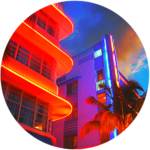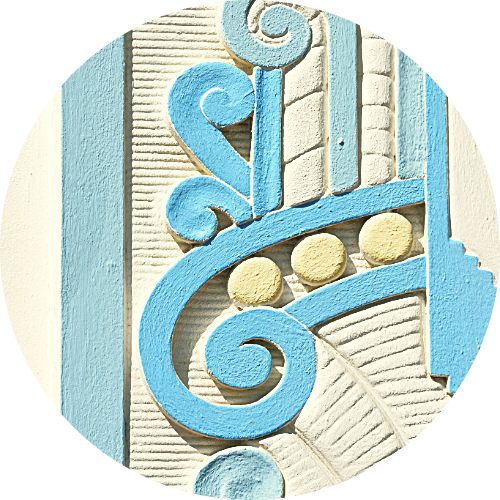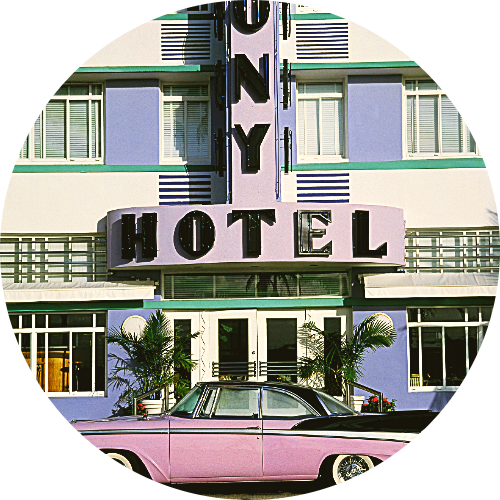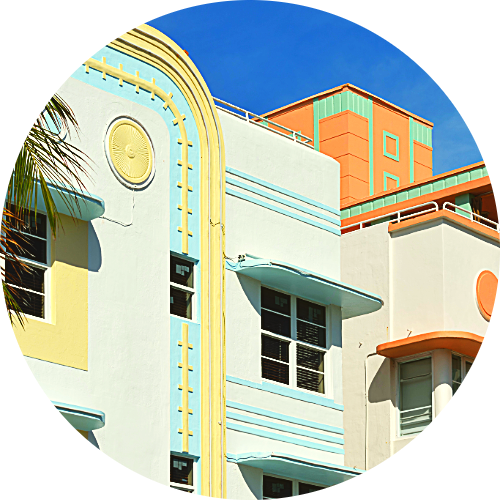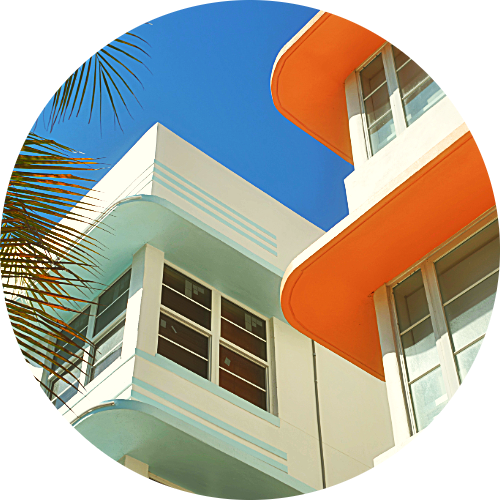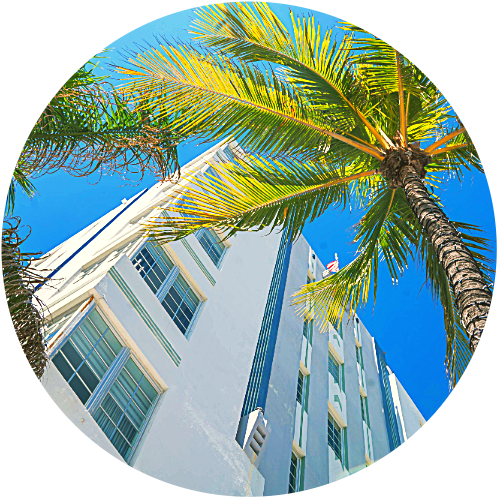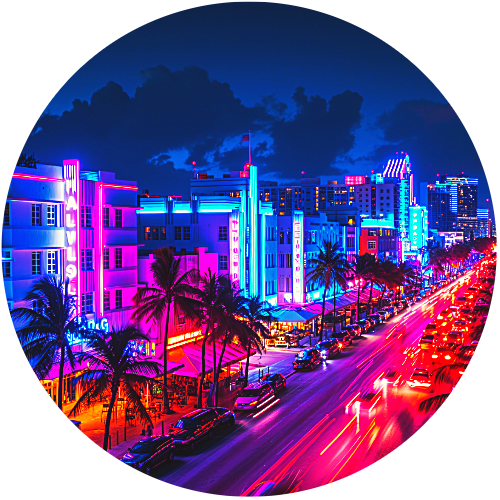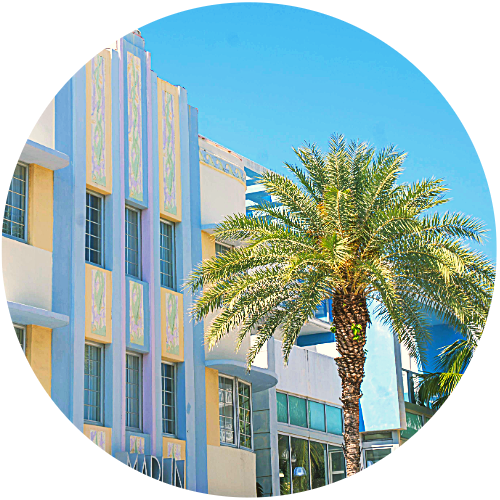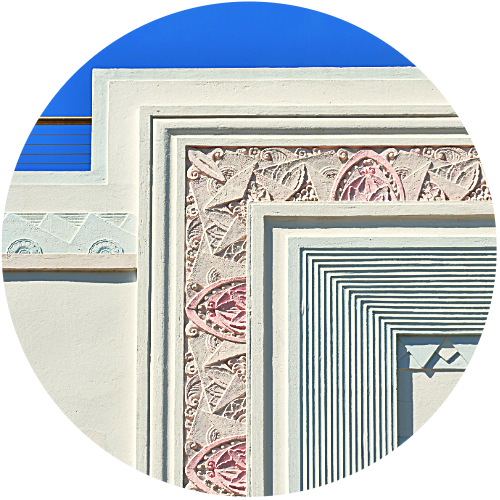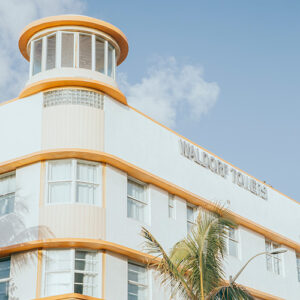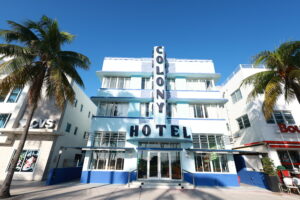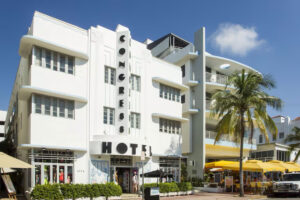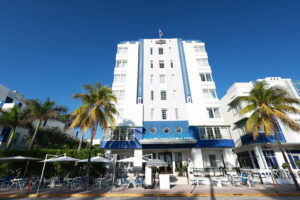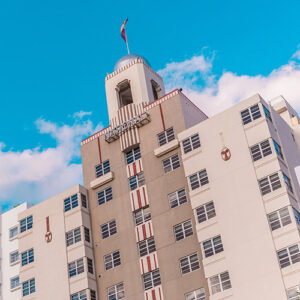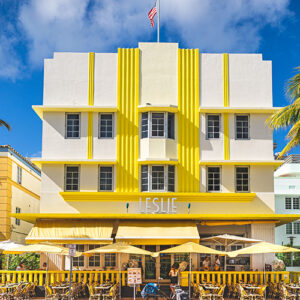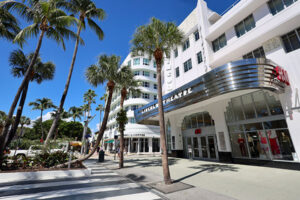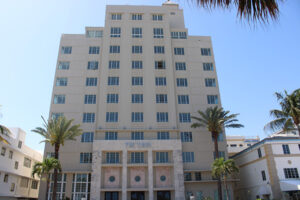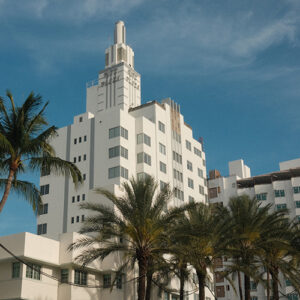ART DECO
Miami Beach is not just a destination, but a living museum of 20th-century design.
Miami Beach’s Art Deco architecture is a cultural landmark that tells the story of the city’s evolution. Whether you’re exploring during Art Deco Weekend or simply strolling along Ocean Drive, the city’s architectural legacy is a constant presence.

In honor of the 100th anniversary of art deco’s debut at the 1925 International Exposition of Modern Decorative and Industrial Arts, the Office of the Mayor and Commission of the City of Miami Beach will host a free outdoor art deco exhibit.
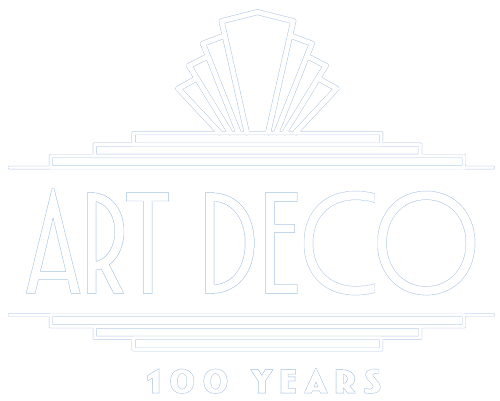
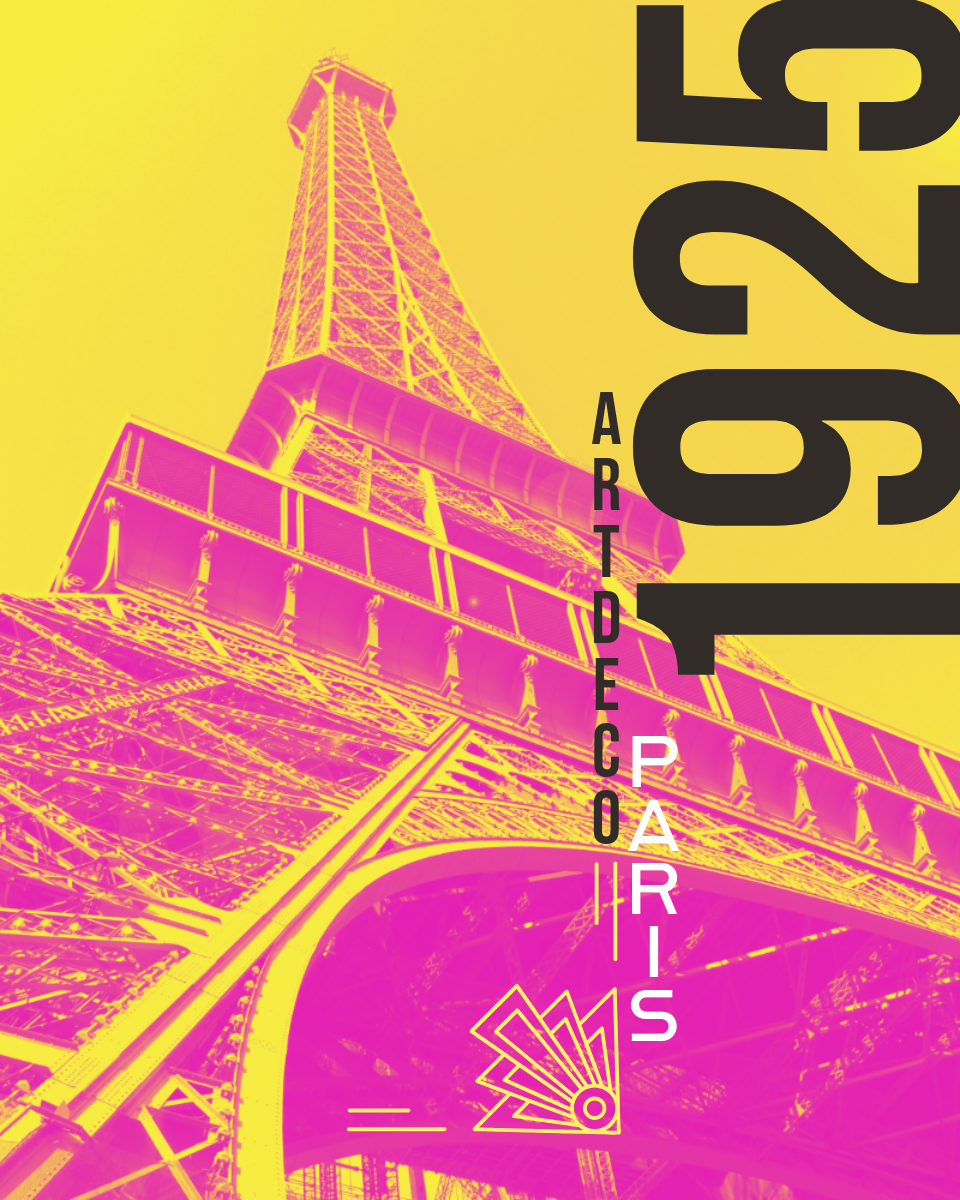

1925
(April 28 - October 25)
Art Deco International Exposition of Modern Decorative and Industrial Arts is held in Paris.
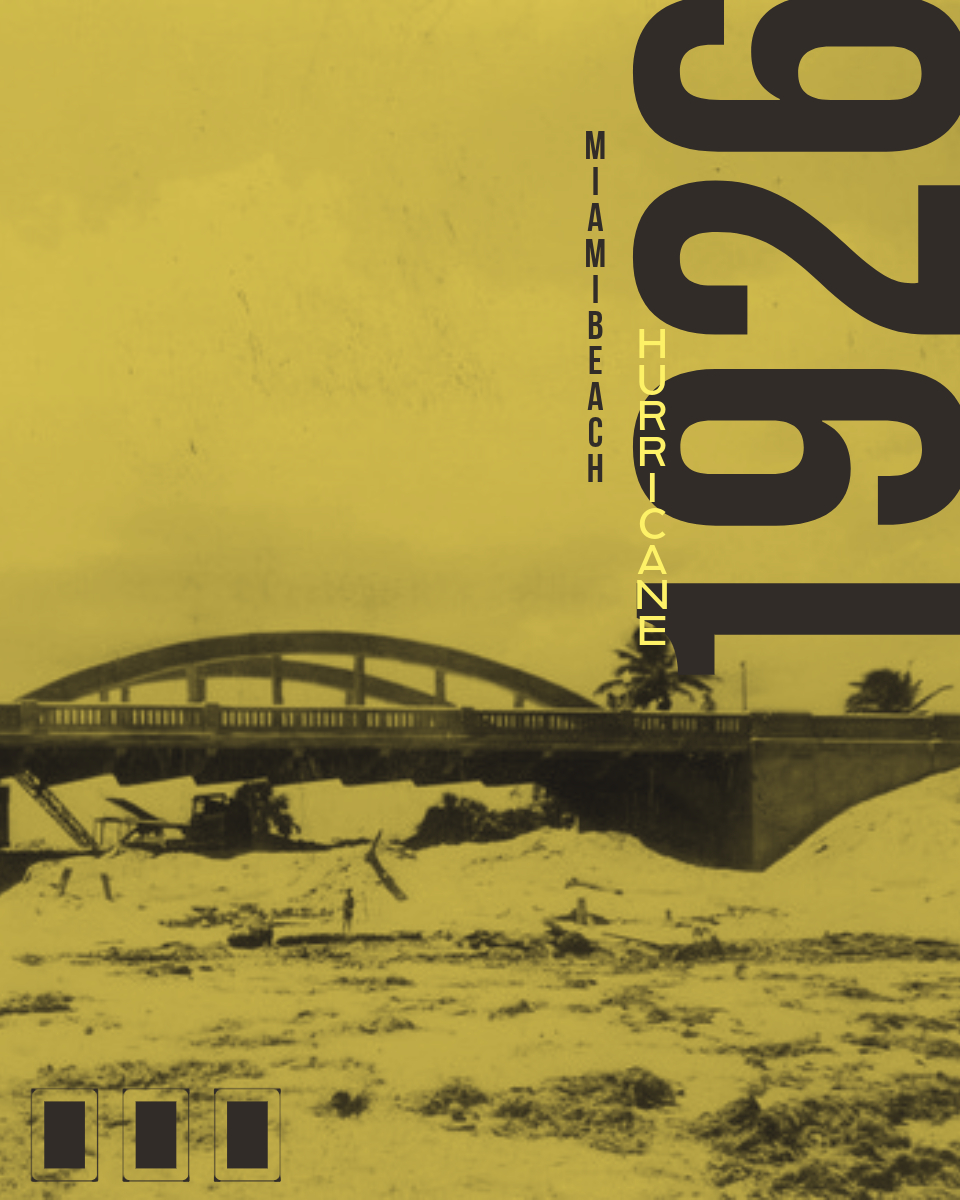

1926
(September 18)
Great Miami Hurricane strikes Miami area causing widespread destruction in Miami Beach and the need to rebuild.
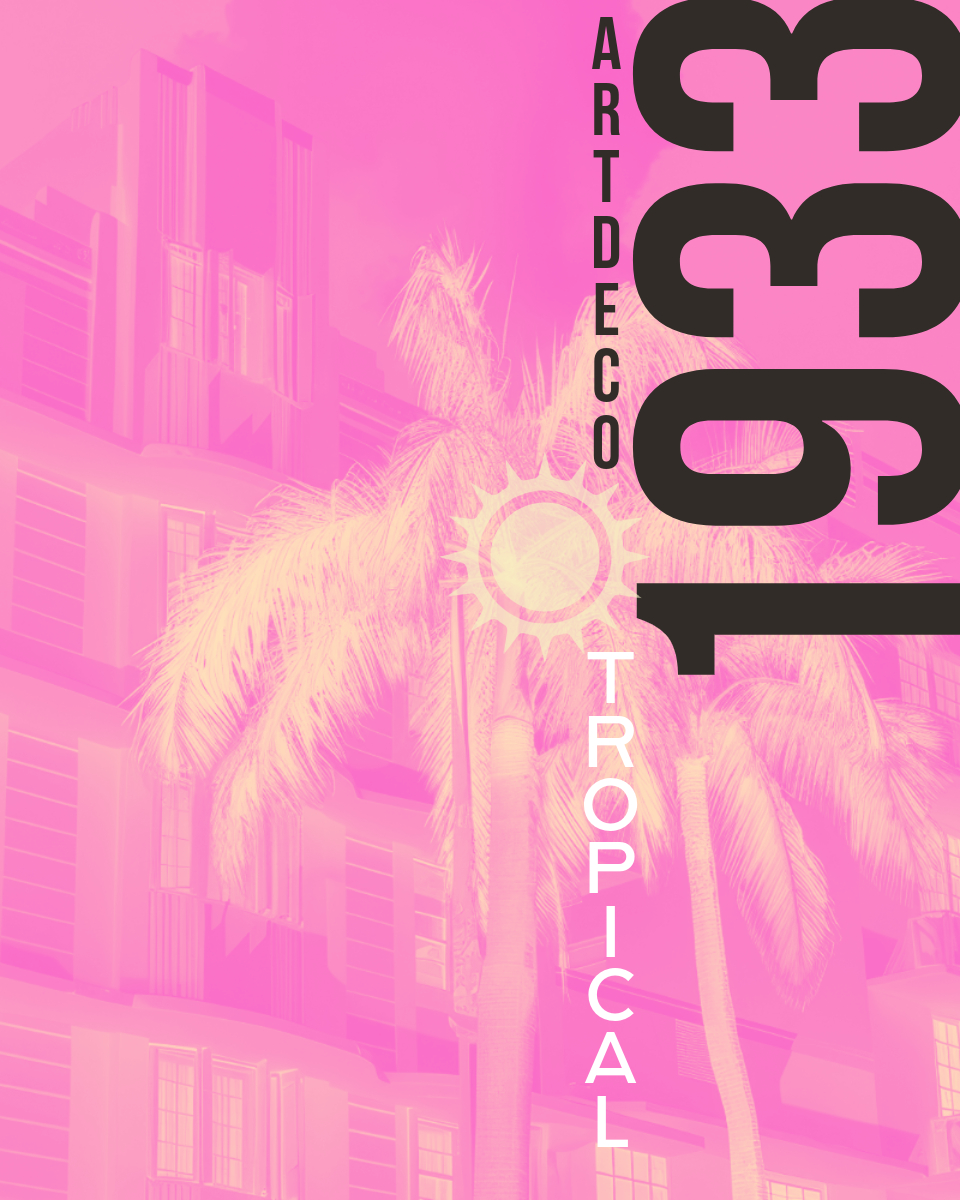

1933
First art deco buildings to appear in Miami Beach with a local twist sometimes referred to as tropical art deco.
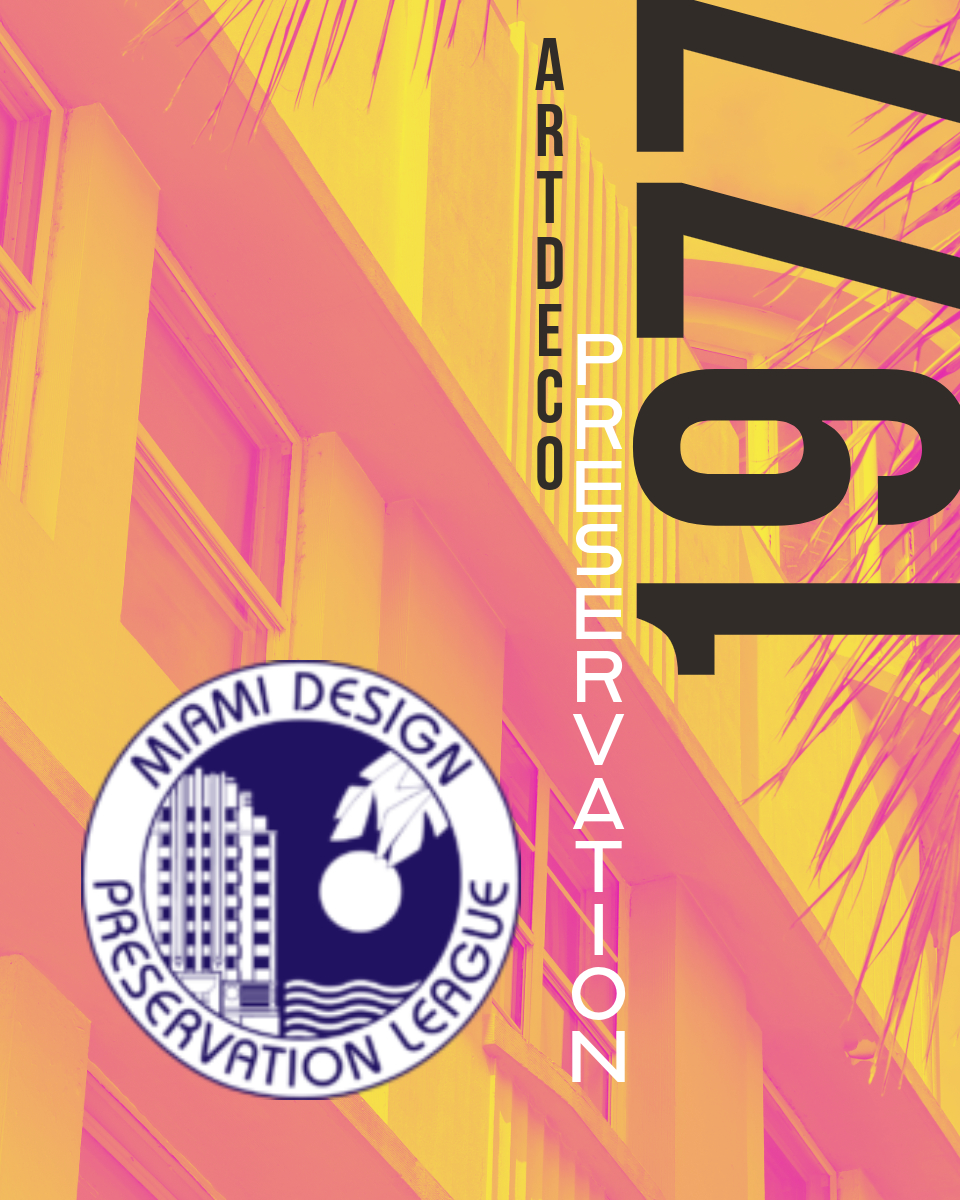

1977
(May 6)
Preservationist and activist Barbara Capitman and a determined group of followers incorporate Miami Design Preservation League and begin to identify a concentration of 1930s buildings in South Beach to serve as a historic district of 20th century architecture.
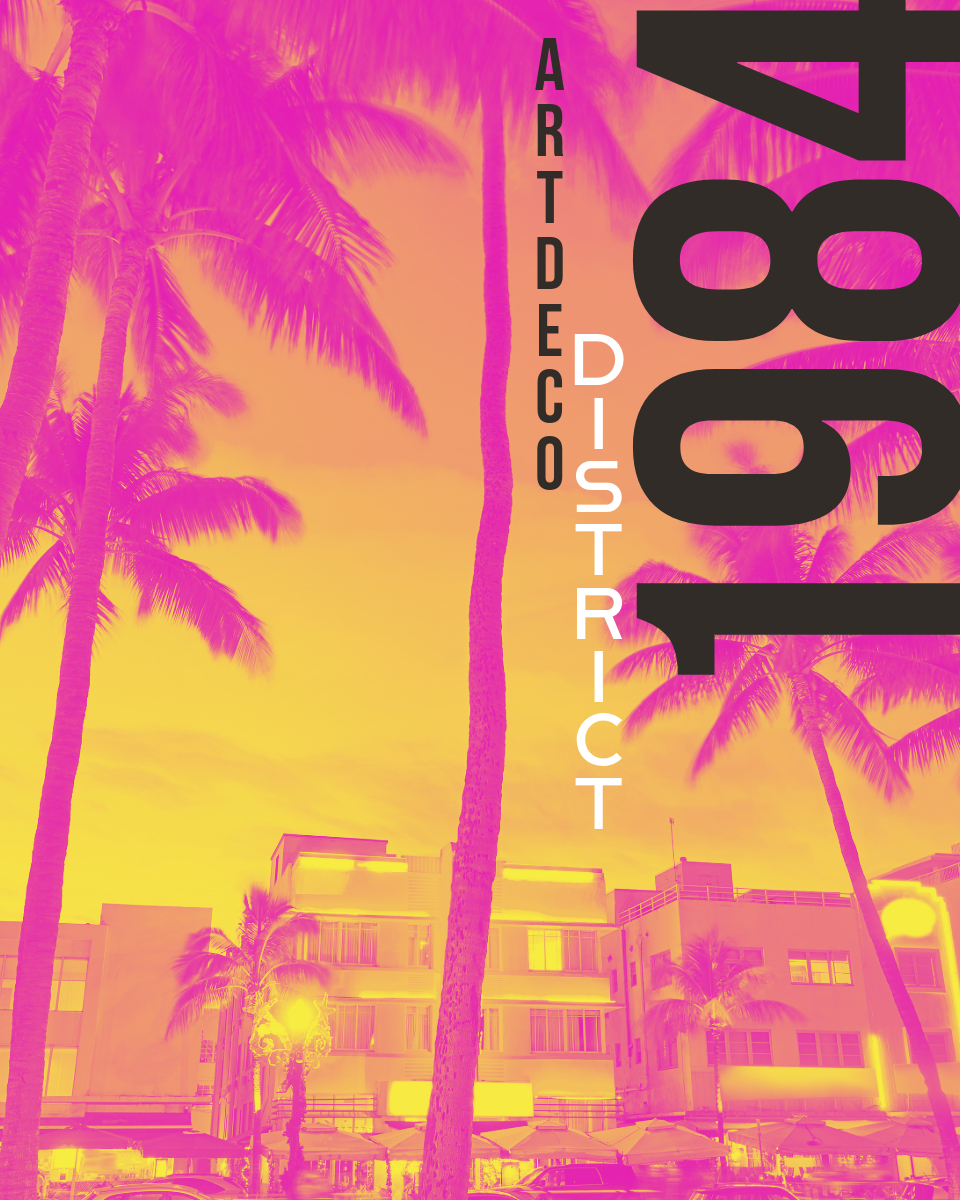

1984
(September 16)
First episode of "Miami Vice" airs on NBC igniting a wave of interest in Miami Beach's famed Art Deco District.
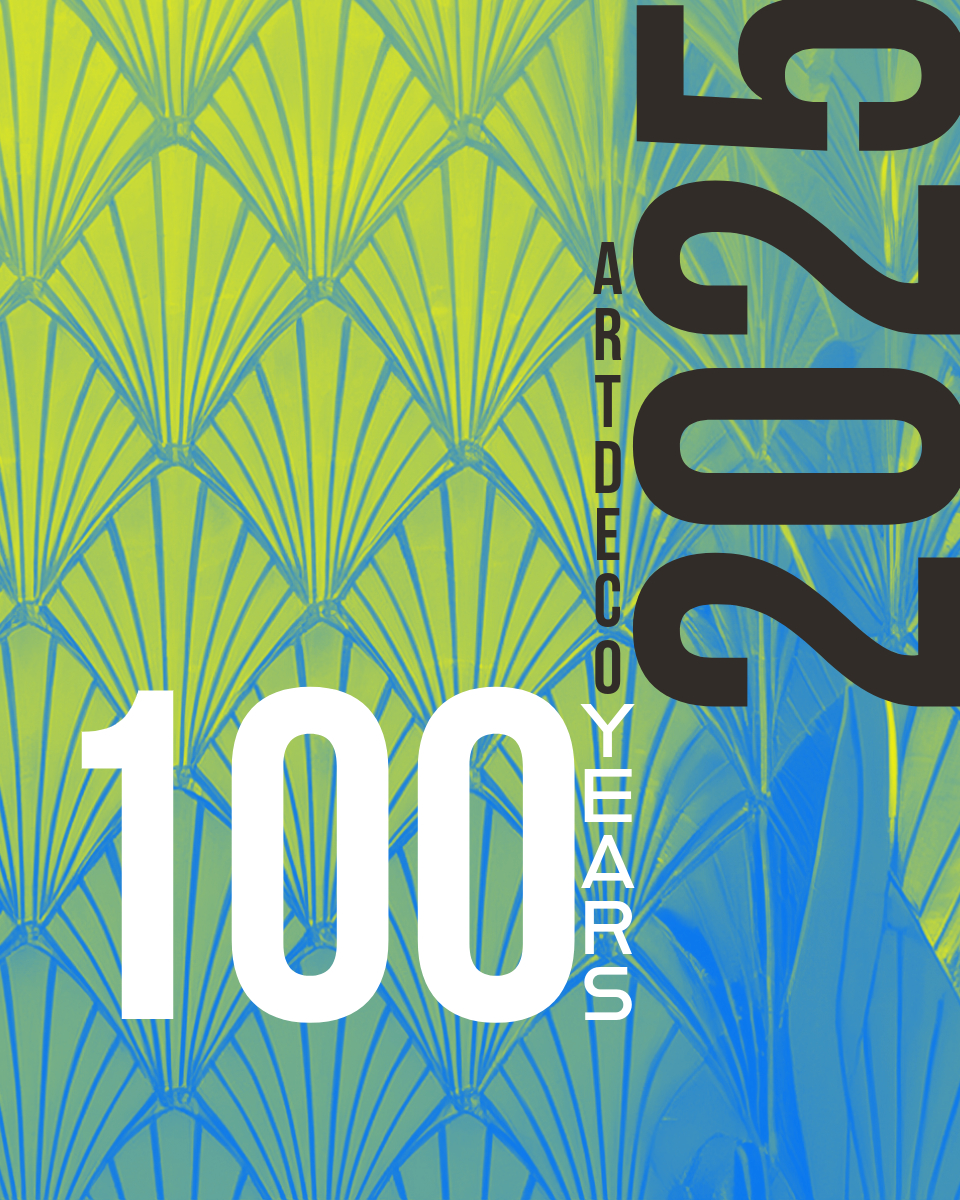

2025
(April 28)
The 100th anniversary of the 1925 Paris exposition that gave Art Deco its name and global spotlight. Over the past century, this bold style has shaped skylines, inspired creatives and become part of Miami Beach’s identity. The centennial honors not just a design era—but a lasting legacy.

KEY FEATURES
-
Geometric Shapes & Symmetry
Art Deco buildings often feature bold geometric shapes, clean lines and symmetrical designs.
-
Bright Colors & Bold Contrasts
Vibrant, eye-catching colors, often with contrasts like black and white, or gold accents, were used in both exterior and interior designs.
-
Decorative Motifs
Common motifs include zigzags, chevrons, fluted patterns and stylized floral, nautical and sunburst designs.
-
Use of Modern Materials
Art Deco buildings made use of modern materials like stainless steel, aluminum, glass, concrete and plastic, alongside traditional materials like stone and wood.
-
Streamlined Forms
Particularly in the later stages of the style, buildings may exhibit streamlined forms that suggest speed and modernity, often referred to as "Streamline Moderne."
-
Neon Accents
Neon lighting was often used for dramatic effect, especially in commercial or public buildings.
-
Tall, Vertical Lines
Many Art Deco buildings emphasize height, with vertical lines and step-back designs that create a sense of upward movement.
-
Exotic Influences
Art Deco often incorporated exotic designs inspired by ancient Egyptian, Aztec, African and other non-Western cultures, reflecting the global influences of the time.

NAUTICAL ART DECO
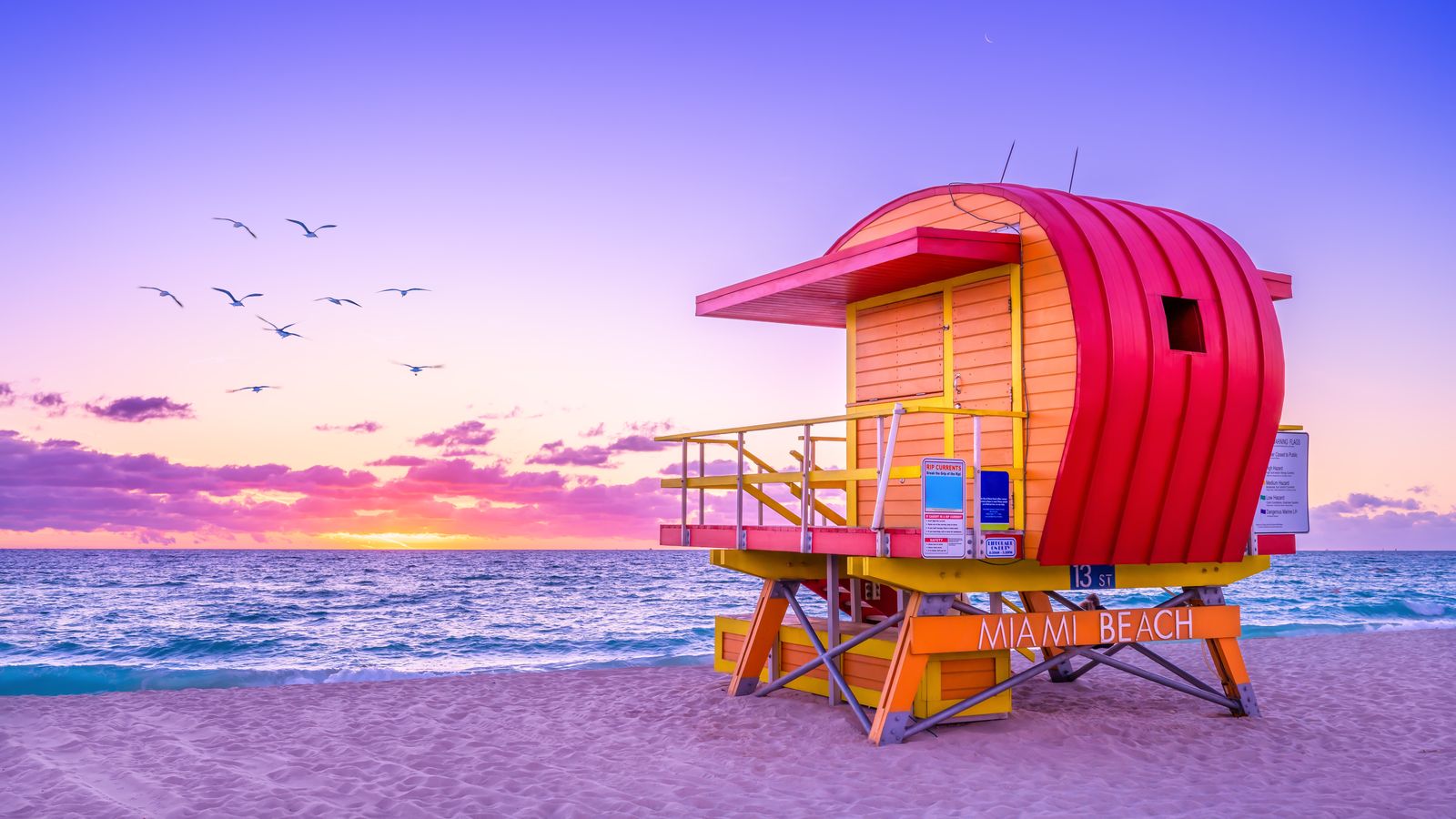
The lifeguard towers designed by William Lane in Miami Beach are a distinctive and iconic part of the city's Art Deco-inspired architecture. They serve as a perfect example of how the Art Deco aesthetic influenced even functional structures in the area.

NOTABLE ART DECO PROPERTIES
Art Deco Weekend® is a free cultural festival celebrating architecture, history, and the arts, organized by the Miami Design Preservation League since 1977, with support from the City of Miami Beach, to highlight the iconic Art Deco architecture of Ocean Drive and beyond.
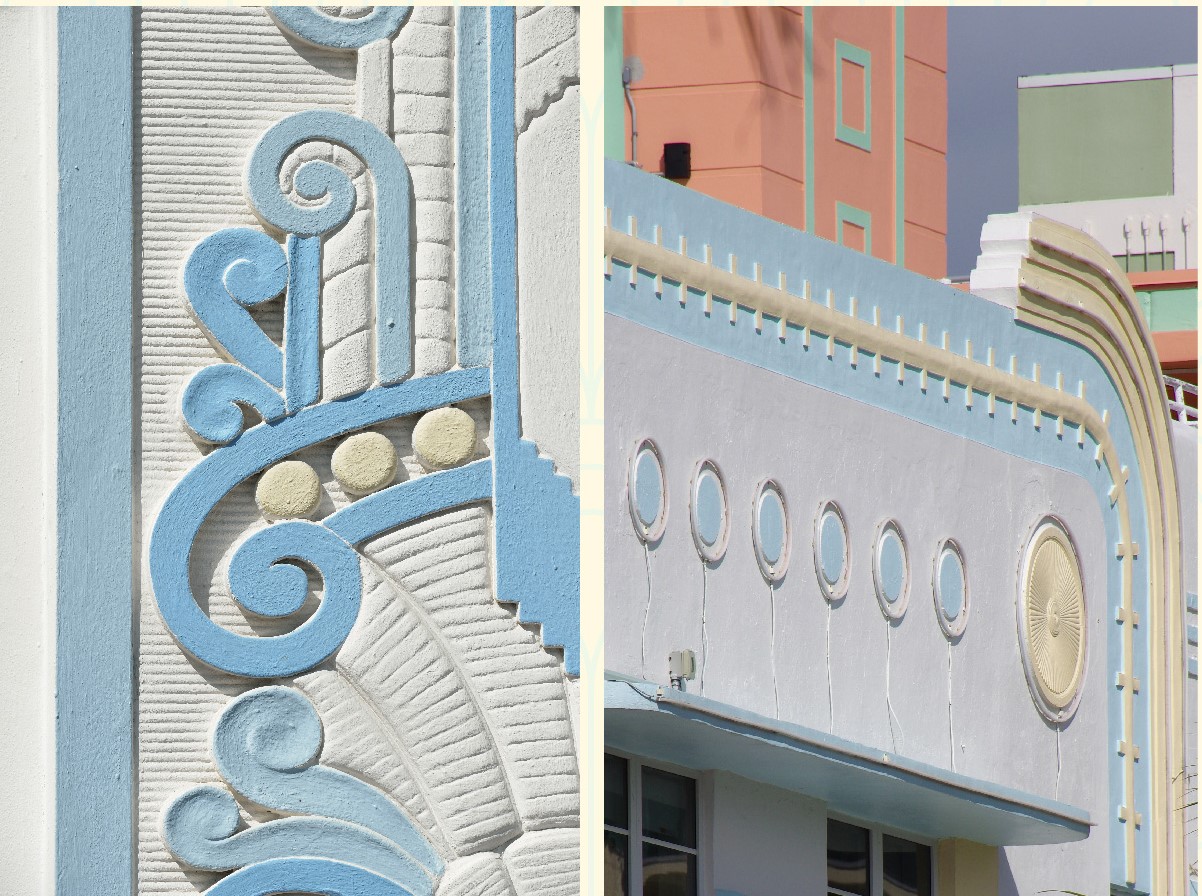
The Art Deco Painting Incentive Program is a matching grant incentive Program designed to assist property owners of commercial buildings in covering the costs associated with painting and enhancing the exterior façade of their building.
